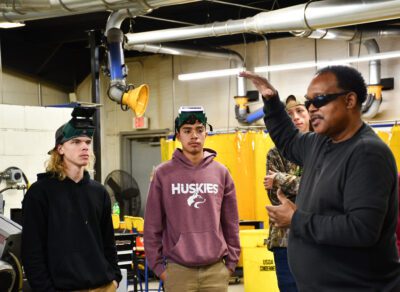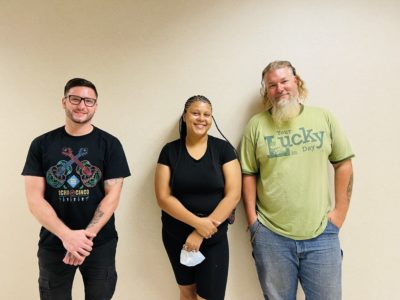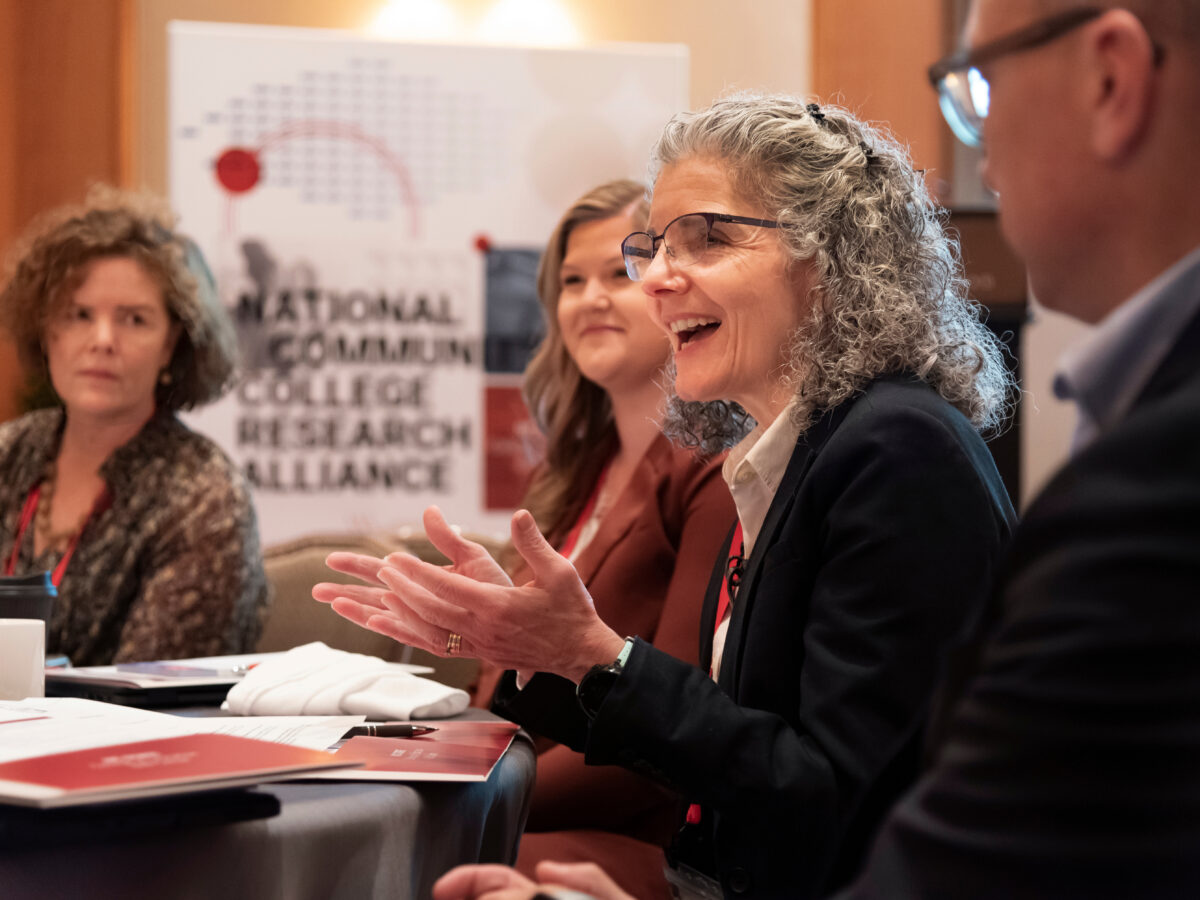

|
|
The National Community College Research Alliance (NCCRA) met for the first time last week in Raleigh to begin building a collective community college research agenda.
Participants included those from research centers across the country, such as The Belk Center for Community College Leadership and Research, Center for Community College Student Engagement (CCCSE), and Community College Research Center (CCRC), as well as individual researchers whose work involves providing decision-makers with the information needed to advance the efforts of community colleges.
The Belk Center at N.C. State University hosted the three-day event.
“The alliance – a first of its kind – was born from conversations with research colleagues across the country who welcomed more opportunities for collaboration and to elevate community college research,” said Belk Center Executive Director Dr. Audrey J. Jaeger. “It’s a moment in time to cultivate rigorous research that uplifts community college leaders and provides valuable information for them to support their respective missions.”
Participants laid the groundwork for the research agenda during the convening. The agenda will be informed by the group’s “collective knowledge of pressing challenges, promising practices, and proven solutions.”
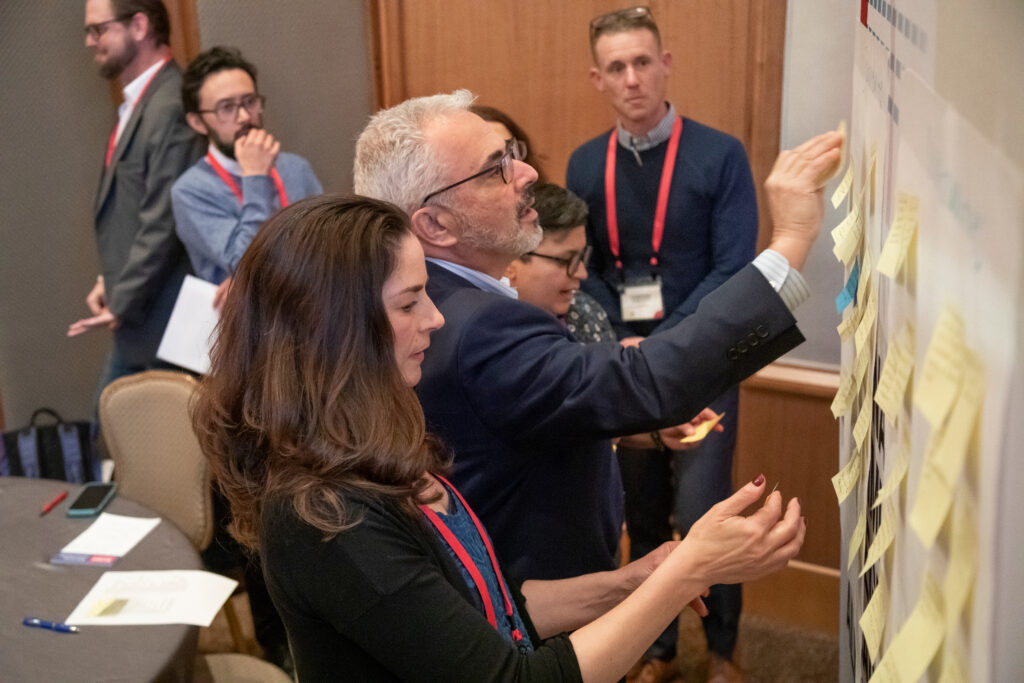

Dr. Cameron Sublett, associate professor at the University of Tennessee and research affiliate at the Belk Center, said the basis for this convening was the idea of collective impact. Sublett said that across the country, distinct centers for community college research are doing amazing work individually, but there is not an established network to share that work and lift up the capacity of those centers.
Researchers used day one of the event to identify challenges and opportunities facing the nation’s community colleges in the years ahead. Some of those challenges include serving adult learners, funding models, and labor market conditions. As for opportunities, researchers noted equitable workforce funding, stackable credentials, and scaling college innovation, to name a few.
Those challenges and opportunities helped pinpoint topic areas of focus throughout the event, including remote teaching and learning, workforce development, and student pathways. Alliance participants then compiled research questions in each topic area that will guide future conversations and partnerships.
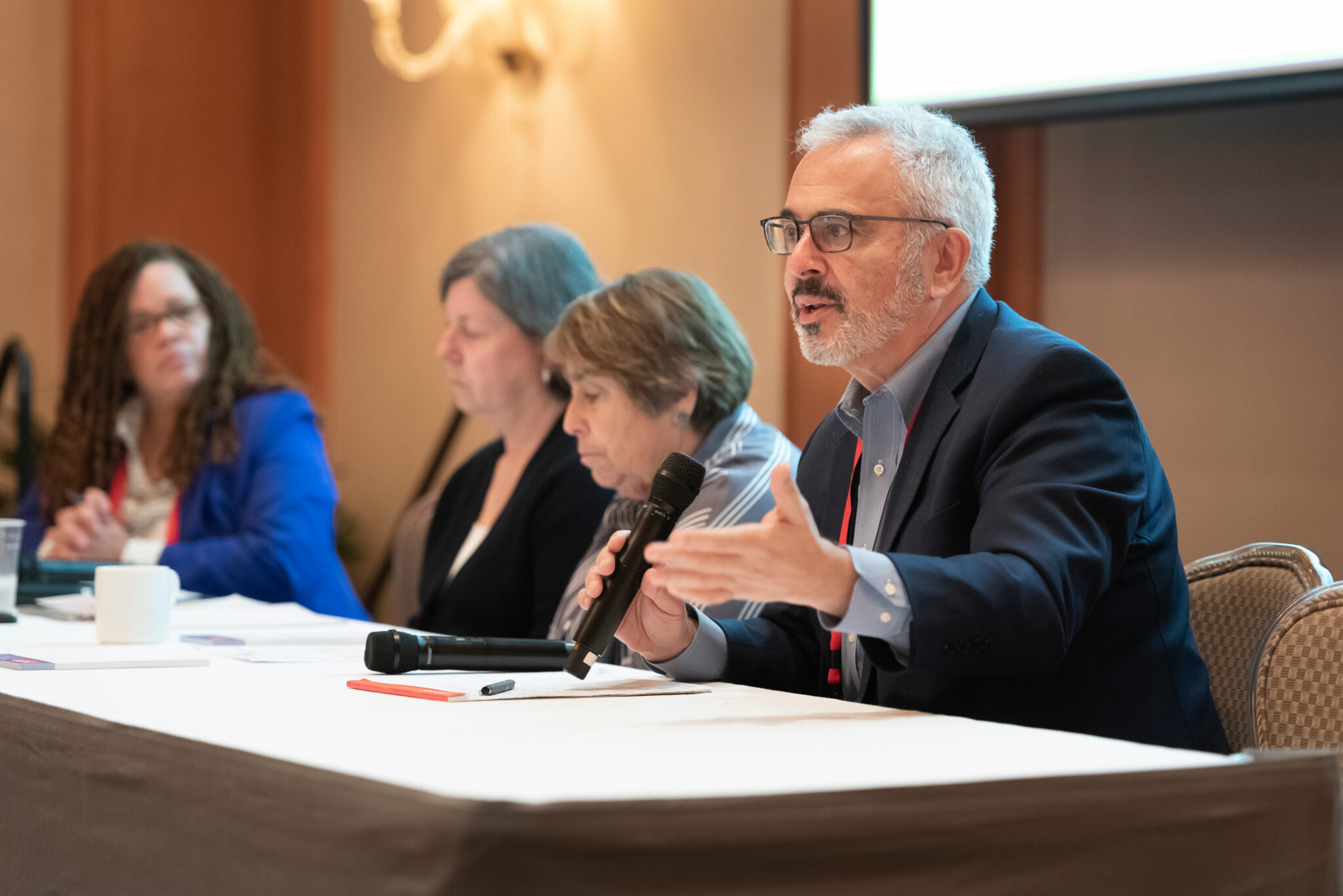

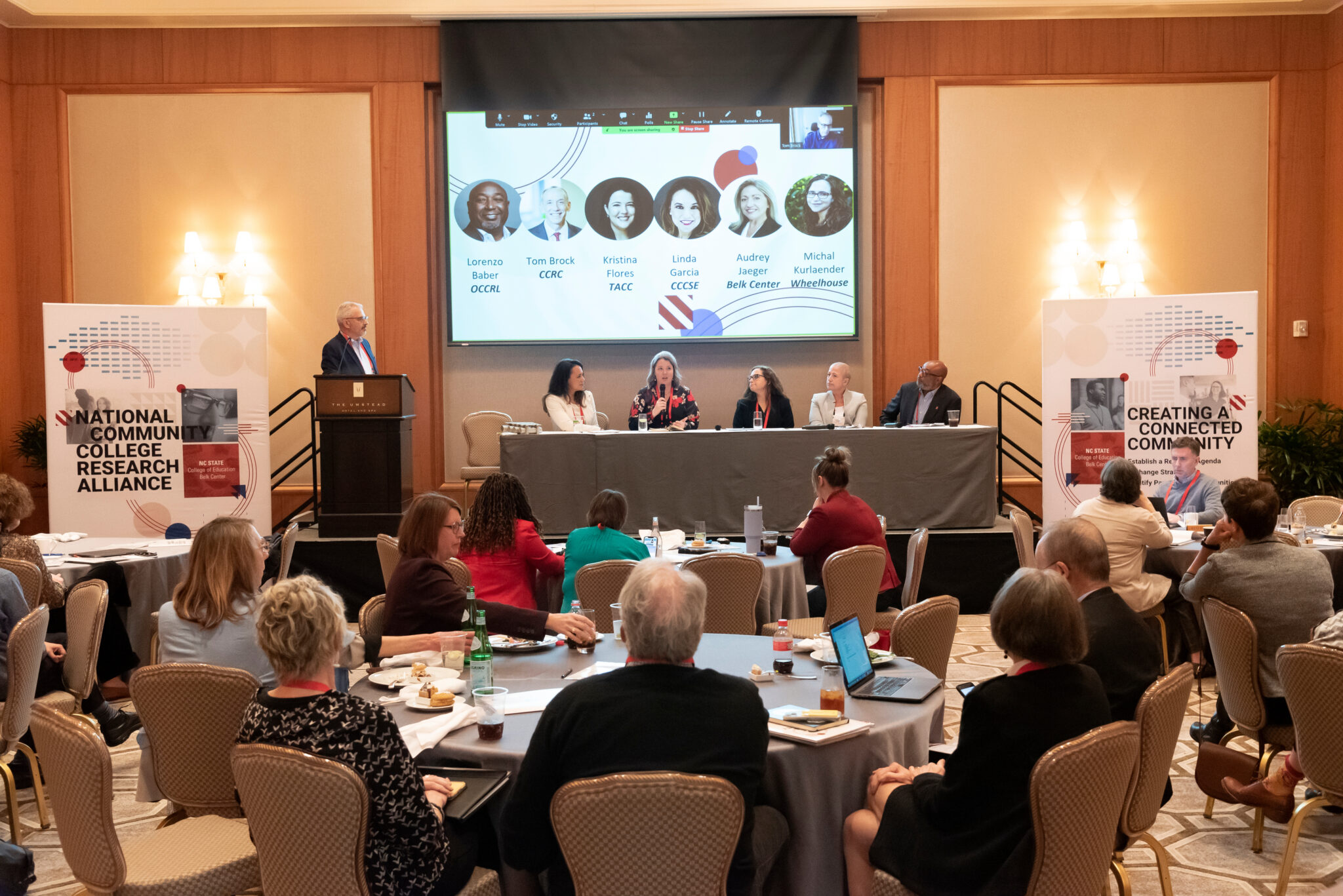

The event also included conversations about bridging the divide between research and practice, helping centers think of ways to make their work more accessible and actionable for colleges and policy makers alike. Executive leaders from four national research centers, including Achieving the Dream and the Aspen Institute, weighed in on effective, collaborative approaches that centers can implement to shape the national conversation on postsecondary education and improve their reach and impact.
“There’s an opportunity for us, researchers and practitioners, to partner in new ways to curate, and disseminate strong action-based or reflective practice research that’s being produced at the college-level. This might require us to think about how we can work together to build stronger supports for our IR [institutional research] offices to support this type of action research. Not every community college IR office can do this, but many can if they get supports and encouragement to do so.”
Dr. Karen Stout, president and chief executive officer of Achieving the Dream
National grant-makers like the John M. Belk Endowment and Lumina Foundation also discussed their foundations’ funding processes and goals over the next few years. The conversations that followed highlighted how collaboration and partnerships among centers, colleges, and funders are key to advancing student success.
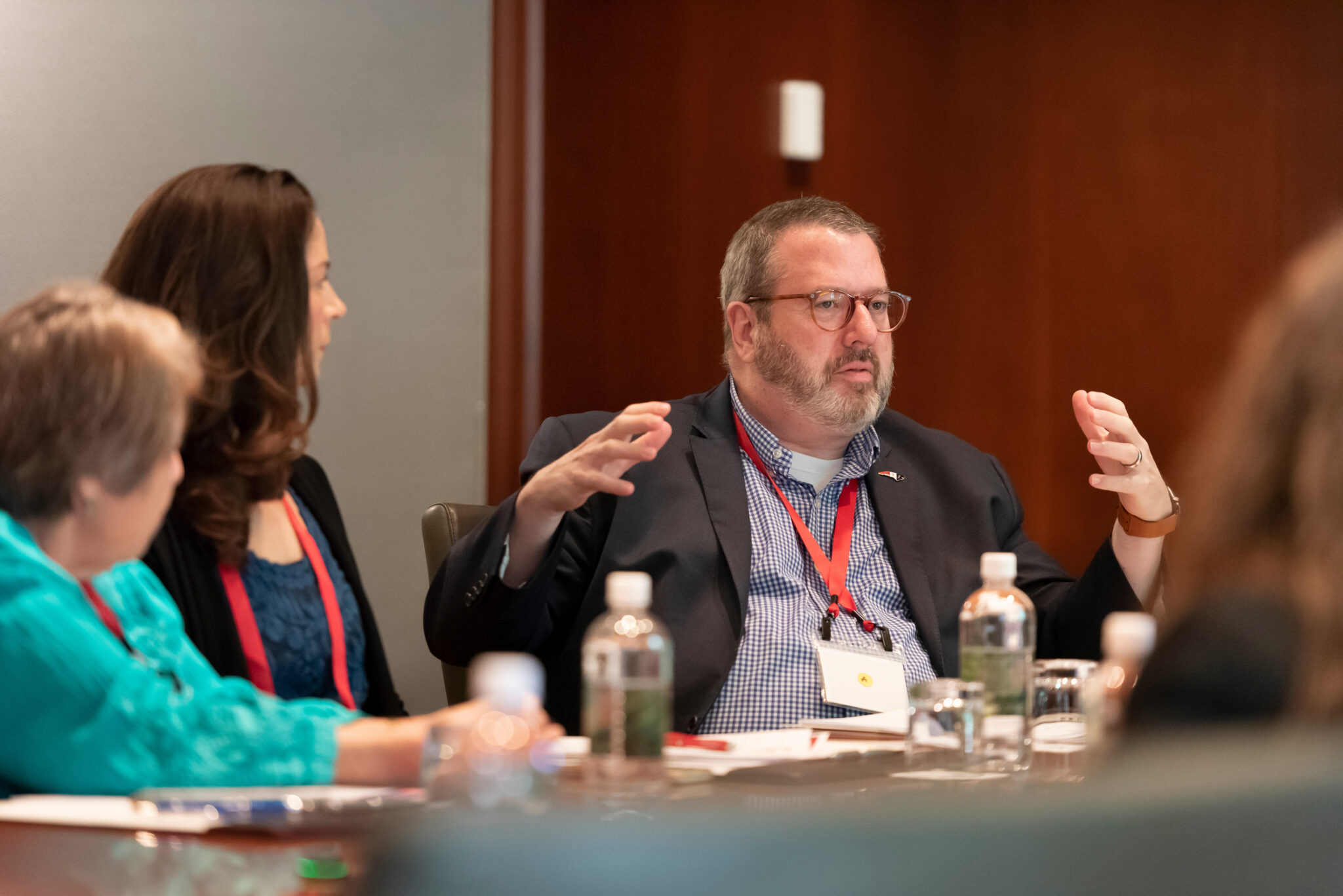

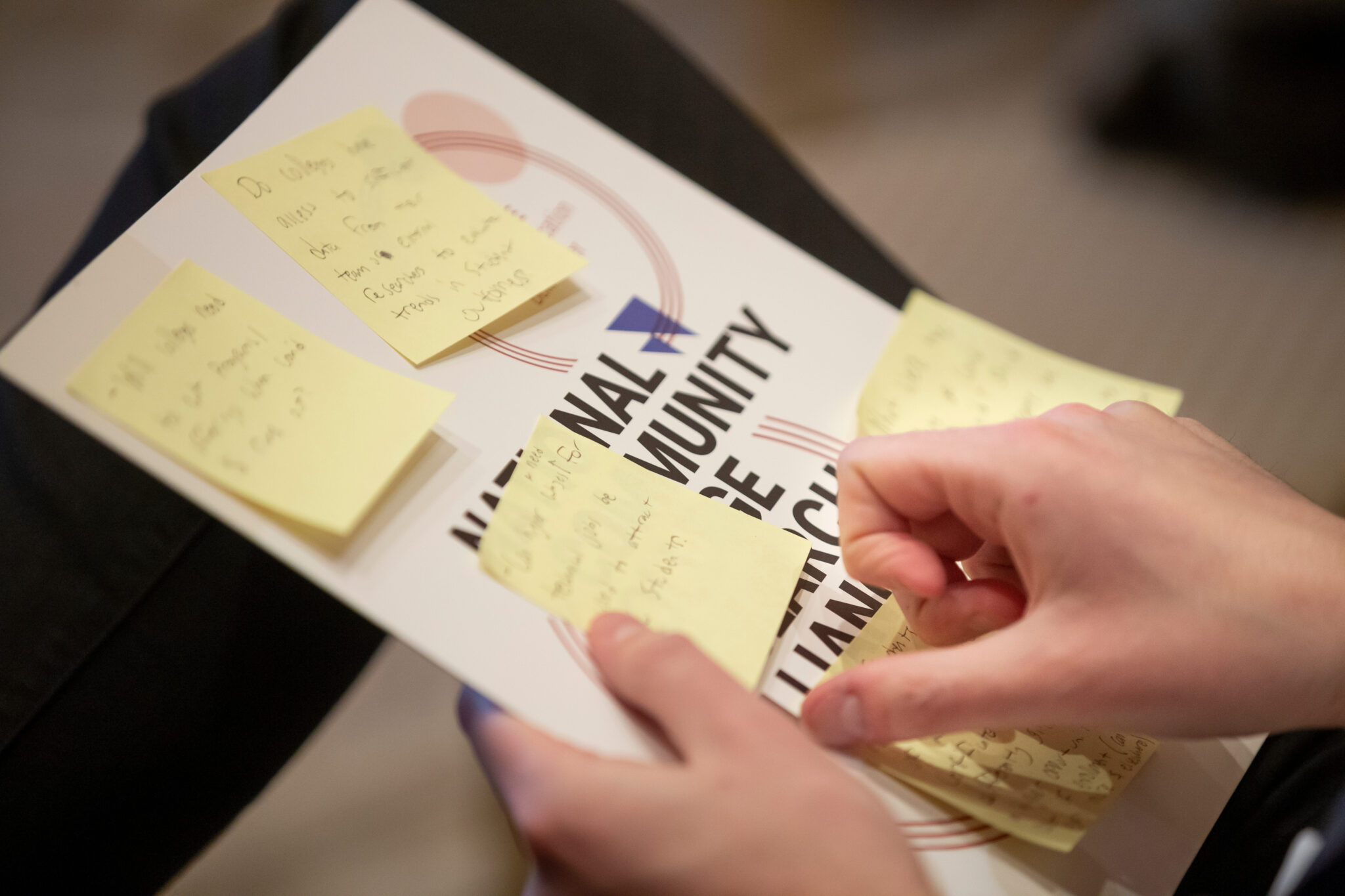

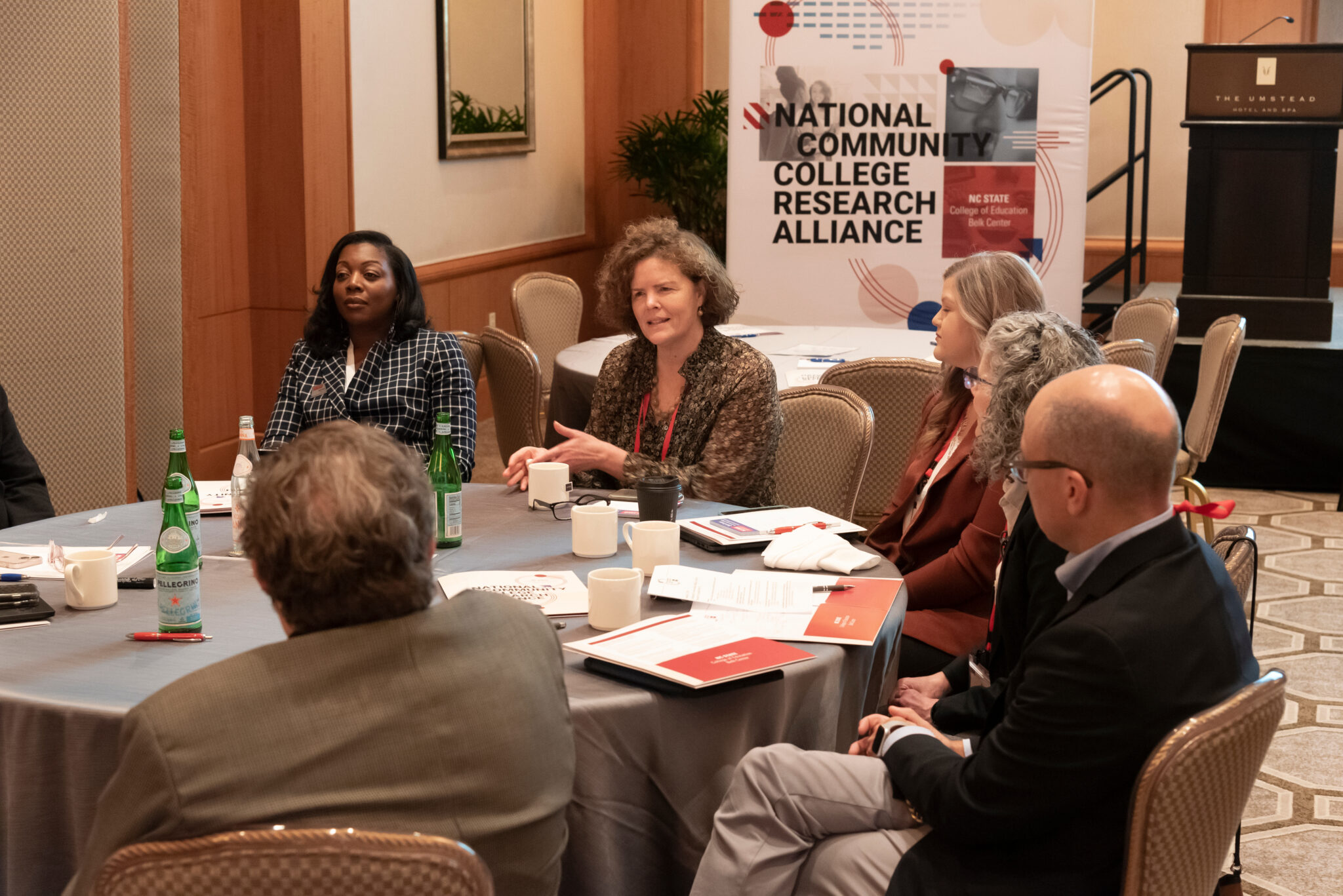

“We are really pleased to be able to bring these research centers from across the U.S. together. While we see and uplift each other’s work at existing academic conferences and online, this convening gave us all a chance to hear about community college research priorities in other states, and what different centers are working on,” said Dr. Holley Nichols, NCCRA event organizer and associate director of research and evaluation at the Belk Center. “We think that the work we accomplished at the alliance may support combined efforts to answer the crucial research questions that is more collaborative, thorough, and efficient.”
Before concluding, participants stressed the importance of maintaining the momentum of this collaborative opportunity and identified ways to move forward. Some of those next steps include compiling ideas generated during the convening to share during upcoming community college research conferences, creating a collaborative online space for research centers to share their work, and establishing alliance working groups to tackle the most pressing research questions in each topic area. Organizers also considered how future events could capture other voices who were not represented in the initial meeting.
Editor’s note: The John M. Belk Endowment supports the work of EducationNC.



